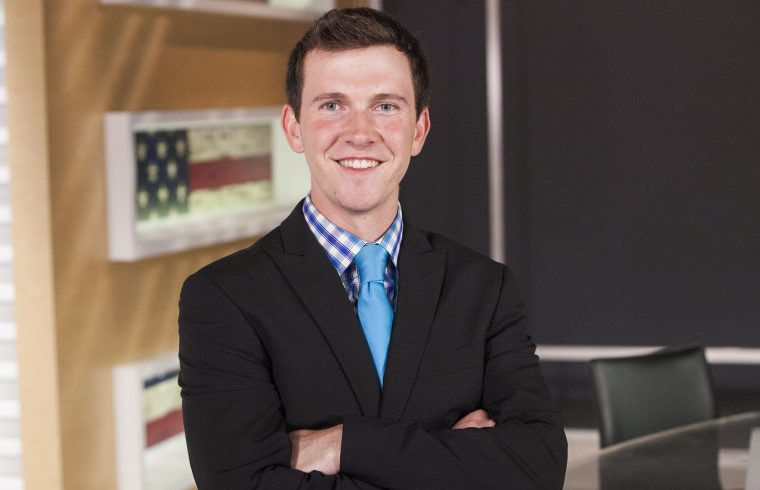INDIANOLA, Iowa — Joe Biden and Kamala Harris sparred on Thursday over the former vice president’s views on busing, one week after the California senator thrust the issue to the forefront of the Democratic debate.
Biden defended his record on school integration even as he encouraged Democrats to “move on” from a discussion of a complex debate centered on his decades-old statements and votes.
“I don’t have to atone,” Biden told NBC News in Independence, Iowa, following a Fourth of July parade. “My record stands for itself. I’ve always supported voluntary busing, which she was part of.”
Across the Hawkeye State, Harris disputed any suggestion that her position on busing mirrors Biden’s, one day after she said the tactic should be one of many options in the “toolbox” available to address inequality in schools.
“He has yet to agree that the position he took then was wrong, and he and I just disagree on that,” she said.
Biden said last week after the debate that he has always made a distinction between busing to remedy so-called de jure segregation of schools, or segregation that resulted from state or local laws, which the former vice president says he has supported the use of busing for to help curtail, and de facto segregation, which developed more organically, and where the federal government should not impose mandatory busing.
But there is little accounting from that time period that provides evidence that Biden, then a senator from Delaware advocated for voluntary busing. Instead, there are a significant number of on-the-record statements from Biden at the time broadly arguing against the practice of busing — statements highlighted by campaign aides from both candidates as part of a furious back-and-forth on Twitter between top Biden and Harris aides.
And…
In 1975, Biden suggested busing is an “asinine concept” and he argued for different means to address inequalities in the school systems.
At the first Democratic presidential debate last week in Miami, Harris knocked Biden over his past comments and opposition to court-ordered busing.
From the debate stage, she questioned his working relationship in the 1970s with two segregationist senators — which burst into the news days earlier after Biden had told supporters about that, citing an era of civility and bipartisanship in the Senate. Harris said chided Biden, saying those senators “built their reputations and career on the segregation of race in this country. And it was not only that, but you also worked with them to oppose busing.”
And on Thursday, at a Fourth of July campaign stop, she challenged Biden on his past opposition to busing, noting that she was a student who benefited from a busing program in her Berkeley school district as a young girl.
Biden, after the debate last week, said he has long held the position that localities should be able to establish voluntary busing programs to aid school integration efforts, and that busing should be a remedy to segregation that is sanctioned by local or state governments. He said the federal government “should have a role by breaking down the barriers that exist in institutional racism.”
On Thursday — in response to Harris’s critique of his record in the 1970s — Biden said anyone can “easily distort” his record from decades ago.
Biden’s 2007 autobiography includes his first direct accounting of an openness to busing. He wrote about a tense discussion of busing with constituents in the 1970s.
“Look, I told them, I was against busing to remedy de facto segregation owing to housing patterns and community comfort. But, he wrote, if it was intentional segregation, “I’d personally pay for helicopters to move the children.”
In the past, and even now, though, Biden seems to have viewed busing as an imperfect solution for an issue with deeper root causes.
Biden and his team have been quick to suggest that Harris now holds a position on busing that largely mirrors how he views the issue.
On Wednesday, Harris told reporters that she believes it is the role of localities to implement busing to desegregate schools, and on Thursday, she added that she would back federally-mandated busing “if we got back to the point where governments were actively opposing integration.” Harris said there is no such current scenario, however.
Harris’ present-day position on busing faced questioning after she asserted that schools are just as segregated “if not more segregated.”
“I support busing,” Harris told reporters in San Francisco on Sunday. “Listen, the schools of America are as segregated — if not more segregated — today than when I was in elementary school. And we need to put every effort, including busing, into play to desegregate the schools.”
Despite the back and forth between the two campaigns, neither Biden nor Harris has proposed federal oversight over local actions.
Harris noted this week that she backs a bill introduced in the Senate that would offer federal grants for a school district to invest in implementing proposals to help better integrate the schools within its jurisdiction. That measure, however, would not force districts that do not choose to seek the grants to take any specific actions to integrate.
“We still do have segregation in our schools, so it needs to be addressed,” Harris said. “And of course I am in support of whatever tool is available to those school districts to implement further integration.”
Biden said Thursday the country needs “to move beyond” the issue of busing, noting that the focus should be on addressing issues of “neighborhoods that, in fact, have substandard schools.”












